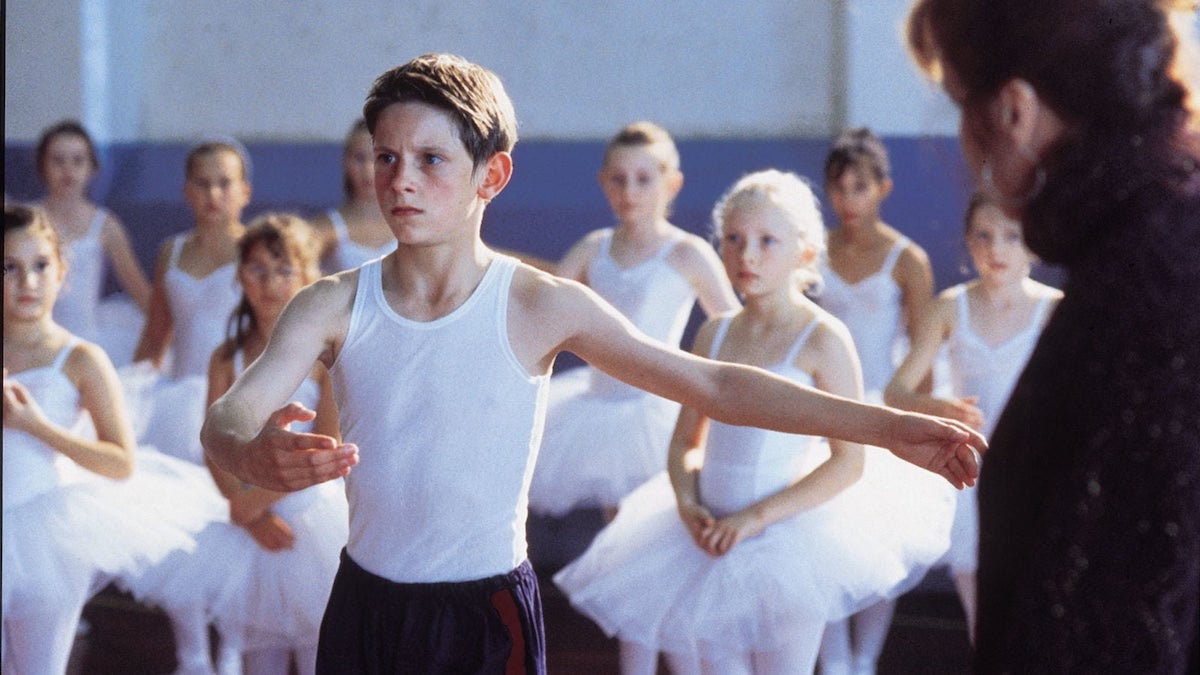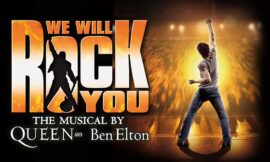Introduction
Billy Elliot the Musical is an award-winning stage adaptation of the 2000 film Billy Elliot, featuring music by Sir Elton John, lyrics by Lee Hall, and direction by Stephen Daldry. The musical tells the heartwarming and powerful story of Billy, an 11-year-old boy from a working-class mining town in Northern England, who discovers an unexpected passion for ballet. Through Billy’s journey, the show explores themes of self-discovery, perseverance, and the impact of social and political struggles on individual aspirations.
Since its premiere in 2005 at London’s Victoria Palace Theatre, Billy Elliot the Musical has received widespread acclaim, winning multiple awards, including ten Tony Awards and five Olivier Awards. The musical’s ability to blend humor, heartfelt emotion, and social commentary has made it a timeless classic.

Background and Development
The original film Billy Elliot was written by Lee Hall and directed by Stephen Daldry. It became a cultural phenomenon, highlighting issues such as class struggles, gender roles, and family dynamics within the backdrop of the 1984–85 UK miners’ strike. Given the film’s success, it was only natural that it would be adapted into a musical, with Hall again penning the book and lyrics.
Elton John, deeply moved by the film, composed the music, creating a score that perfectly balances soaring ballads with energetic dance numbers. With a creative team that included choreographer Peter Darling, Billy Elliot the Musical came to life, successfully transitioning from screen to stage.
Synopsis
Set in a Northern English mining town during the 1984–85 miners’ strike, the story follows Billy Elliot, a young boy whose life is changed when he stumbles into a ballet class instead of his usual boxing lesson. Under the guidance of the tough yet caring ballet teacher Mrs. Wilkinson, Billy discovers his extraordinary talent for dance. However, his aspirations conflict with the rigid expectations of his father and the struggles of his community.
As the town battles economic hardship, Billy’s family faces emotional turmoil. His father and brother, both involved in the strike, initially forbid him from pursuing ballet, viewing it as unsuitable for a boy. However, with time, they begin to recognize Billy’s passion and potential, eventually rallying behind him as he auditions for the prestigious Royal Ballet School in London.
The musical’s climax is both uplifting and bittersweet, as Billy leaves his home and family behind to chase his dream. His journey symbolizes hope, change, and the breaking down of societal barriers.
Key Themes and Messages
- Following One’s Passion At its core, Billy Elliot the Musical is a story about a young boy defying societal norms to pursue his dream. Despite opposition from his family and community, Billy remains steadfast, teaching audiences the importance of resilience and self-belief.
- Class Struggles and Economic Hardship The backdrop of the miners’ strike highlights the struggles of the working class and the sacrifices they make. Billy’s story is not just about dance but also about the hardships faced by his community, adding depth and realism to the narrative.
- Gender Stereotypes and Breaking Barriers Billy’s journey challenges traditional gender roles, particularly in working-class environments where ballet is considered unsuitable for boys. His story serves as a commentary on masculinity, proving that passion and talent transcend societal expectations.
- Family and Community Billy’s relationship with his father and brother evolves throughout the musical, showcasing the power of love and support. Initially resistant, his family ultimately embraces his dream, reflecting themes of personal growth and understanding.
Musical Numbers and Choreography
Elton John’s music adds emotional depth to the narrative, with a blend of powerful ballads and high-energy numbers. Some of the most notable songs include:
- “The Stars Look Down” – A powerful opening number that sets the stage for the miners’ struggles.
- “Shine” – A lively, comedic song performed by Mrs. Wilkinson and her ballet students.
- “Solidarity” – A striking number that juxtaposes the miners’ strike with Billy’s dance training.
- “Expressing Yourself” – A joyful, energetic song about self-expression, performed by Billy and his best friend Michael.
- “Electricity” – The emotional highlight of the show, where Billy describes the indescribable feeling of dancing.
- “Once We Were Kings” – A poignant anthem reflecting the miners’ struggles and resilience.
The choreography, created by Peter Darling, is a standout aspect of the musical. The dance sequences seamlessly blend classical ballet, tap, and contemporary styles, visually representing Billy’s journey and emotions. The use of movement to contrast Billy’s dance against the rigid, militant energy of the striking miners adds another layer of storytelling.
Critical Reception and Awards
Billy Elliot the Musical was met with overwhelming critical acclaim. It premiered on the West End in 2005, running for over 4,600 performances before closing in 2016. Its Broadway debut in 2008 was equally successful, earning ten Tony Awards, including Best Musical. The production has since toured internationally, with performances in Australia, Canada, South Korea, and other countries.
The musical’s ability to blend social commentary with an uplifting personal journey has resonated with audiences worldwide. Critics have praised its storytelling, emotional depth, and powerful performances, particularly those of the young actors portraying Billy.
Cultural Impact and Legacy
Beyond its critical and commercial success, Billy Elliot the Musical has had a lasting impact on theater and popular culture. It has inspired young dancers worldwide, encouraging boys to pursue ballet despite societal stereotypes. Many productions have launched the careers of talented young performers, showcasing the immense skill required to play the demanding role of Billy.
The show’s exploration of class struggles and economic hardship remains relevant, reminding audiences of the importance of resilience and solidarity. Even years after its initial premiere, Billy Elliot the Musical continues to be performed in various countries, proving its timeless appeal.
Conclusion
Billy Elliot the Musical is more than just a story about dance—it is a celebration of perseverance, self-expression, and the transformative power of art. Through a compelling narrative, memorable music, and breathtaking choreography, the musical has captured the hearts of audiences worldwide. Its themes of social change, family, and following one’s dreams make it a masterpiece that continues to inspire generations.
Whether you are drawn to its political undertones, its emotional depth, or its stunning dance sequences, Billy Elliot the Musical remains one of the most beloved and impactful stage productions of the 21st century.
*I’m not sure of the exact date for Billy Elliot, but in September 2006, Jeena and I attended We Will Rock You, our first musical, marking the beginning of our theatre-going experiences.


